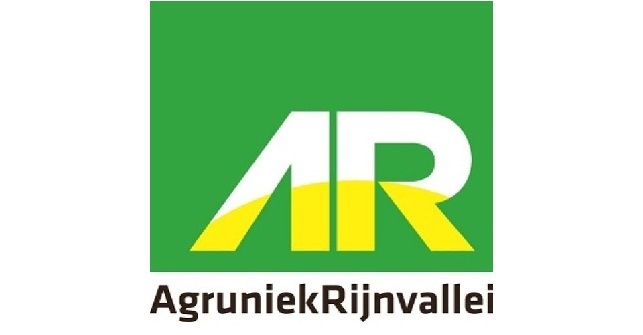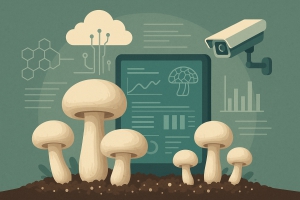The mushroom industry has always been an example of how biology and ingenuity can coexist. What started centuries ago as a craft based on observation, experience, and intuition is now rapidly evolving into a field where data and digital technology drive every decision. The next generation of mushroom farms is taking shape, intelligent, connected, and remarkably sustainable.
Automation becomes accessible
Until recently, automation was something only large farms could afford. Complex climate control systems, robotic picking solutions, and data-driven monitoring platforms were impressive but often out of reach for smaller growers. That landscape is now changing. As technology becomes more affordable and modular, small and mid-sized farms can adopt automation step by step, from simple environmental sensors to cloud-based farm management systems.
These tools help growers maintain stable growing conditions, reduce labor costs, and minimize waste. More importantly, they allow farmers to focus on the art of cultivation, rather than on manual data collection or repetitive control adjustments.
Smarter growing through data
Every mushroom tells a story of temperature, humidity, substrate composition, and microbial balance. By collecting and interpreting this data, growers can now understand their crops better than ever before. Artificial intelligence (AI) is entering the scene, helping to predict yields, identify anomalies early, and even recommend optimal growing cycles.
Imagine a system that learns the behavior of your farm, adjusting CO₂ levels, light exposure, or irrigation based on previous flushes while alerting you to subtle changes that might affect productivity. That’s not science fiction anymore; it’s the emerging reality of smart mushroom cultivation.
The rise of AI-assisted strain development
While climate control and automation enhance the growing environment, artificial intelligence could soon reshape what we grow. AI-assisted strain selection combines genomic data, performance tracking, and environmental inputs to identify which varieties thrive under specific conditions. This opens the door to developing new strains faster, with higher yields, better shelf life, or specific nutritional or medicinal properties.
For mushroom breeders and spawn producers, this digital layer adds precision to what has long been an art form, bridging traditional mycology with computational biology.
Transparency and traceability through blockchain
Consumers today want to know where their food comes from and mushrooms are no exception. Blockchain technology can bring new levels of transparency to the supply chain. From substrate sourcing to post-harvest logistics, each step could be securely logged, offering proof of sustainability, origin, and quality.
For growers, it’s also a way to build trust with buyers and regulatory bodies, simplifying certification and export documentation. In a world where sustainability is not just a value but a requirement, such traceability systems will likely become standard practice.
Sustainability: the core of innovation
At the heart of all this progress is a shared commitment to sustainability. Automation and digitalization are not replacing the grower, they’re empowering them to produce more efficiently, use fewer resources, and reduce waste. From optimizing substrate recipes to recycling heat and water within facilities, smart systems are helping farms close the loop.
The mushroom sector has always been a pioneer in circular agriculture. Now, by integrating technology, it is showing that environmental responsibility and innovation can grow side by side.
A future rooted in tradition and technology
The message is clear: the future of mushroom farming is intelligent, data-driven, and sustainable. Yet the essence of the craft remains unchanged, understanding living organisms and creating the conditions for them to thrive. By combining centuries-old cultivation wisdom with 21st-century technology, the mushroom industry continues to prove that innovation grows best on a fertile foundation.
Published by Mushroom Matter: connecting the global mushroom community through insight, innovation, and inspiration






















